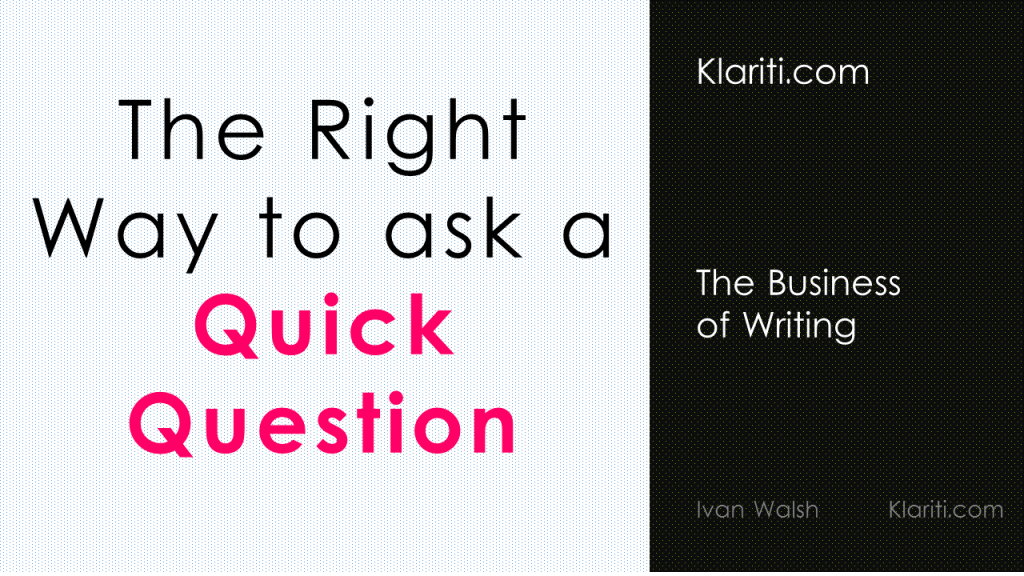Project Management
The Right Way to Ask a Quick Question
Hate being interrupted? Who doesn’t.
The thing is: sometimes you need to interrupt others too.
If you start off with, ‘I just got a quick question…,’ their proton shields shoot up.
Defense mode activated. Getting the response you were hoping for slips away…
‘Yeah, I’ll get back to you’, isn’t good enough when you need them to take action, for example, review the prices in the NGO proposal.
So how do you get their attention?
How can you encourage others to 1) pay attention, 2) understand the implications of your request, and 3) agree on the next step?
Amy Gallo on HBR, offers the following framework:
- Provide the most important information up front and ask for what you need. “John, I need your advice about the product launch.“
- Set the scene. Provide just enough context so the audience can follow along. “To refresh your memory, the event we have planned is…”
- Explain what prompted you to deliver the message. “We need to figure out how to motivate the vendor to meet marketing’s deadline.”
- Connect to the big picture. Why should your audience care? “This is a critical step toward meeting our unit’s goal of 65% customer retention.”
For example: “While eliminating the call checklist may seem like a small issue, it has important implications. It will encourage reps to engage with customers in a more informal way, which has been shown to increase customer satisfaction. This is a critical step toward meeting our unit’s goal of 65% customer retention.”
- Make it memorable. Give them something to latch on to such as a metaphor, a statistic, or a sound bite.
- Refocus their attention. It’s easy for audiences to get distracted by secondary issues, so you must help them concentrate on the central objective.
- End with a call to action. Once you’ve set the context, reiterate what it is you need from your audience.
Of the seven points, the second stands out for me.
Set the scene.
Why?
When you approach someone, especially if they are in the middle of something, their attention is elsewhere. The wheels are spinning. You can see it in their eyes. They’re looking at you but their attention is still on THEIR problem.
You need to stop their momentum first.
Also, you can’t assume they remember something that happened yesterday, last week, or last month.
Just because you’ve been thinking about it doesn’t mean they have.
It’s a bit like walking in during the middle of a film and asking what’s happening. You need a little background information to bring you up to speed and make sense of it all.
A quick summary puts everything else in context.
One way to do this is to remind them of what happened in the past, where we are in the present, then link it to what needs to happen in the future.
Linking past, present, and future helps them see the lifecycle of the problem — and why they need to contribute.
Over to you.
How do you interrupt others when they’re busy?
How do you avoid being dismissed or fobbed off?


